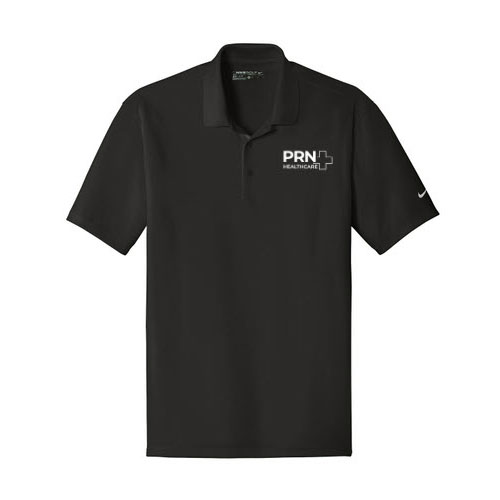As a Healthcare staffing agency, we understand the importance of having reliable information and trustworthy information available to you. That’s why our healthcare content is created by experienced nurses and healthcare professionals who understand the industry firsthand. We use trustworthy sources and keep our information up-to-date so you can feel confident in the advice and resources we offer.

Before you secure a cardiologist locums contract, you need to apply to the job first! It’s important to be mindful that your resume is your golden ticket into your dream job. The first step when applying for a job is to make sure your resume is cleaned up. Your resume, otherwise known as a curriculum vitae (CV), is the first impression that a recruiter sees when you apply for the job and then shortly after it will go to the hiring manager and clinical leader.
A CV for physicians plays an essential role in your career path and features multiple sections that showcase your expertise. A few examples of those sections can include: professional experience, education, awards, and publications. It’s in your hands as the cardiologist to choose what design and content you want to include in your resume. Below are tips on creating a cardiologist resume that will help you be successful during your job search and throughout your career path.
How Long Should A Cardiologist Resume Be?
A cardiologist resume should be clear and concise, while focusing on relevant information as it pertains to the job. The resume should ideally be 3-4 pages, or longer if needed, to summarize their education, certifications, professional experience, and notable achievements or publications. The goal of a resume is to highlight your qualifications and skills, without it being overwhelming and full of unnecessary details. The resume is your key to show employers why you would be the perfect fit for the position they have posted. It’s important to keep your resume up-to-date, while keeping it organized and easy for the employer to read. This can help you stand out from the other resumes and competition. Then afterwards, if the employer enjoyed your resume they will hopefully call you in for an interview.
Layout for A Cardiologist CV:
The first step in creating an award winning curriculum vitae (CV) is organizing your content. An organized CV is essential for accurately conveying your qualifications, skills, and experience to your potential employers. Next, laying out the information in an appealing and well-planned way not only makes the hiring process smoother, but also increases your chances in making a positive impression and advancing in your job search. Below are the main sections you should include in your CV and the recommended order you should have them in.
- Contact Information
- Employment and Experience
- Education
- License and Certifications
- Honors and Awards
- Research Experience
- Personal Spotlights (ex. Volunteer Mission Trips)
Contact Information:
It’s important to include your contact information at the very top of your CV. Having this at the top of the page will make it easy for the employer to contact you for an interview.
When putting your contact information at the top of your CV you want to list out your full name. Then, you should list your personal email address and phone number. Typically, employers will reach out to you through email or phone number if they are interested in setting up an interview, which is why you should consistently be checking both forms of communication. Lastly, you may also list your permanent address on your resume if you are looking to apply to a local position near you, otherwise this is not necessary.
Employment and Experience:
This is one of the most crucial parts of your resume! You’ll want to include a list of your past or current work experiences that relate to the responsibilities in the job description. You should list your employment in chorological order, starting with your most recent position. It’s also important to note both the month and year for each of your past work experiences.
Employers are reviewing many resumes daily, and they want to see qualified candidates proven success and qualifications. This is why it is important to focus on metrics in your employment points. These metrics could include patient volume, patient population, types of cases, or how you made the program more efficient. By providing metrics in your resume it will not only support your points, but shows the impact of your actions that you made on the job.
Education:
The education section on a cardiologist’s resume can be short and brief. You’ll want to list your relevant education and training, which typically includes starts with where you attended college, medical school, internship experience, and where you completed your residency program in your post gradate years. It’s also important to include both the month and year when listing your past education experiences. The month and year should be listed in the following format: MM/YYYY. By highlighting your education background on your resume, it establishes your expertise and qualifications needed in the field of cardiology.
License and Certification:
For this section, start by listing the states that you are licensed to practice in. Then it’s important to list different certifications or sub-specialties you have obtained in your field of study. According to Zippia, the five best cardiologist certifications or sub-specialties to have include:
- Cardiovascular Disease
- Interventional Cardiology
- Board Certification in Cardiology
- Nuclear Cardiology (CBNC)
- Certified Phlebotomy Technician (CPT)
Including a list of your certifications and sub-specialties on your resume can demonstrate your expertise and competency as a cardiologist. Also including these items can help you stand out to employers and set you apart from your competition. Make sure to list the month and year your license and certification were received, as well as the date they expire.
Honors and Awards:
This section is where you should highlight your honors and awards received as a practicing cardiologist. By adding honors and awards to your resume it will showcase the credibility to your qualifications and achievements. An example of an award could be resident of the year. Other types of honors and awards can come from your education path such as national honors student or Valedictorian.
Research Experience:
As a cardiologist, you may or may not have recent research experience. Because of this, this section does not necessarily need to be called research. It could also be called the publications or academics section. Remember that employers are interested in your most recent work. For example, if you have publications and papers or research from several years ago, you may want to cut back on the amount of information shared on the CV. If you share it at all. You also want to make sure you have a good balance of papers, publications or research on your resume to make sure it isn’t overwhelming for the reader.
Personal Spotlights:
If you have participated in any volunteering or mission trips that relate to your field of work, this would be a great opportunity to showcase your soft skills on your CV. By participating in volunteer work or mission trips, it often involves exposure to diverse patient populations and medical conditions. This can help broaden your clinical experience in the long-run and stand out to employers. These types of experiences often require working in unfamiliar and challenging settings, which can highlight your ability to adapt efficiently in different situations.
Example of a Cardiologist CV:
As you can see, optimizing your cardiologist resume is so important when applying for a job. The field of cardiology is very competitive, and there are often many qualified candidates for limited positions. Also, a well-optimized resume can make a positive first impression to the employer by demonstrating your qualifications for the position. Overall, optimizing your resume will help you stand out from the other candidates and ensure your chances of securing a job in the competitive job market.
PRN Healthcare’s locum contracts take place throughout the nation. Interested in cardiologist opportunities? Chat with our experienced recruiters on what locum contracts we have nationwide!




